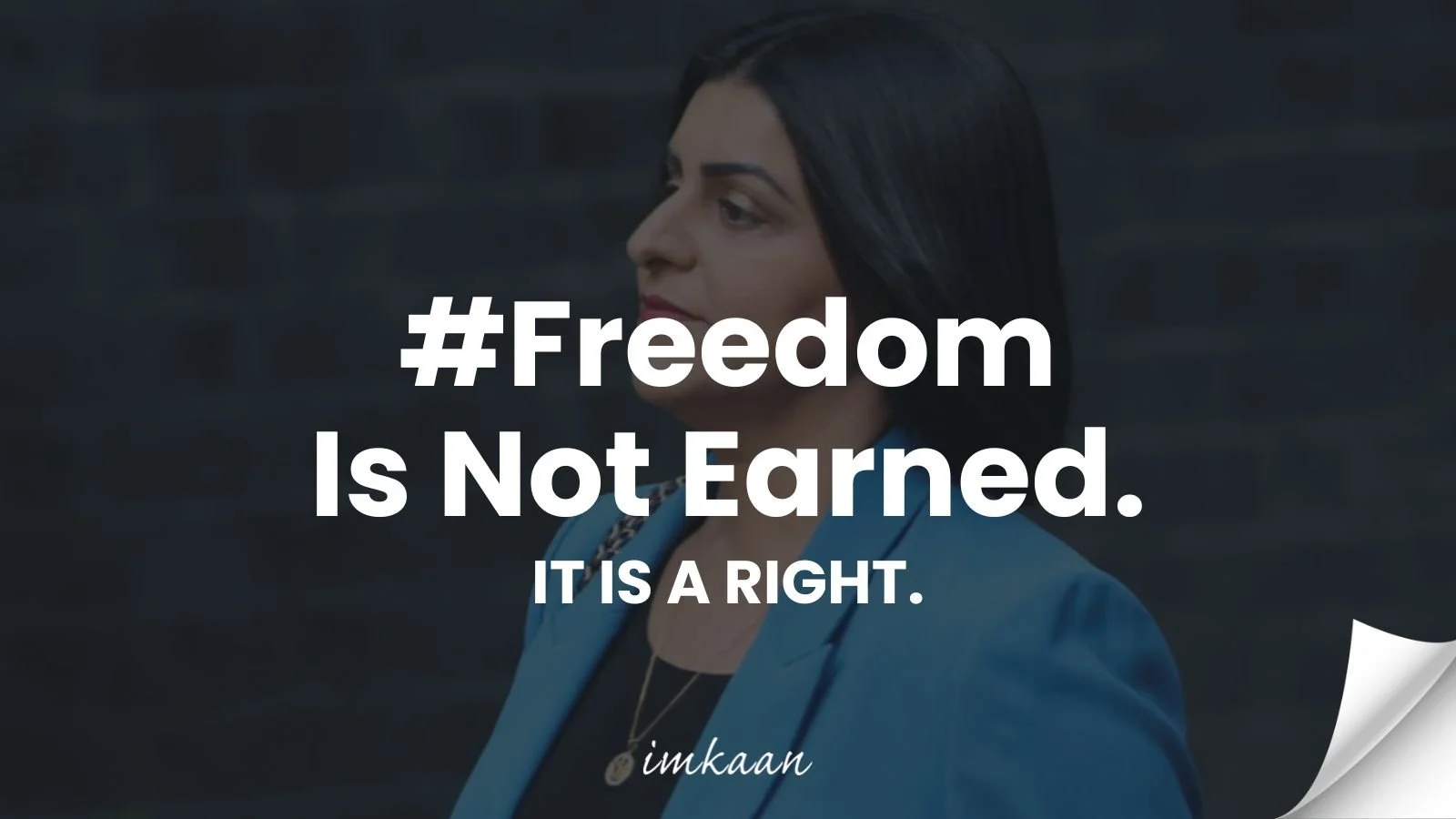Freedom Is Not Earned: It is a right.
Imkaan’s Response to the Home Secretary’s Speech at the Labour Party Conference, amidst BHM
1st October 2025
As we mark Black History Month, it is impossible to separate the Home Secretary’s recent announcement at the recent Labour Party Conference from the broader historical and political context of how Black and minoritised communities have been treated in the UK.
At a time when the UK celebrates the contributions of Black communities, her announcement exposes the contradiction at the heart of government rhetoric: celebrating Black history while reinforcing systems that continue to marginalise Black and minoritised migrant lives.
Shabana Mahmood’s conference speech outlined several forthcoming policy changes. She spoke about creating a “fair migration system” and establishing the “necessary conditions” for an “open, tolerant, and generous country.” Yet, she made no reference to Labour’s general election commitment to halve violence against women and girls (VAWG), nor did she address issues related to no recourse to public funds (NRPF) or the establishment of a firewall between immigration enforcement and public services.
Instead, she announced a series of new measures concerning the right to remain in the UK through legal migration routes, stating that “time spent in this country is not enough,” and that migrants must now “earn the right to live in this country for good.”
The UK has long benefitted from migration - from the Windrush generation who helped rebuild this country after the war, to the countless migrant workers who sustain our health, care, and service sectors today. Yet rather than recognising this legacy, the government continues to devalue the very communities that have contributed so much. Policies like this rewrite history by erasing the role that Black and minoritised people have played in shaping modern Britain.
Instead of honouring that legacy with fairness and dignity, the government continues to frame migrants as a burden or a threat. This narrative legitimises racism and exclusion at every level of society - telling Black and minoritised communities that no matter how much they give, they will always have to prove they belong.
Framing safety, safeguarding, and belonging as something to be earned reinforces harmful ideas about who is ‘deserving’ of rights and who is not. Such narratives are not just divisive; they are dangerous, particularly for Black and minoritised migrant women and girls who are victims and survivors of violence. Immigration control is already being used as a tool of coercion and abuse by perpetrators - trapping women in violent relationships by making them fear detention, deportation, or destitution if they seek help.
Policies that make immigration status even more conditional risk entrenching these inequalities - making it harder, not easier, for survivors to seek safety and rebuild their lives. By tying the right to remain in the UK to employment, volunteering, or language proficiency, the government is effectively telling survivors that their safety and freedom are conditional.
“The current government’s policy direction deepens the structural racism and exclusion already embedded within the UK immigration system. It treats Black and minoritised migrant women who have experienced violence as threats to be managed, rather than as individuals with rights, dignity, and lives. For Black and minoritised women, this is yet another way in which the state turns its back on survivors”
Executive Director of Imkaan, Ghadah Alnasseri
These proposals reproduce systems of power that divide and harm communities, fuelling resentment and reinforcing racialised narratives that target Black and minoritised women as seen in the rise of anti-immigration mobilisations across the UK.
As we stand firmly against the introduction of these policies and in honour of Black History Month, Imkaan reinforces that #FreedomIsNotEarned. It is a right. We continue to challenge the harmful narratives that frame safety, belonging, and freedoml as privileges to be earned rather than rights to be guaranteed. And we are committed to calling out the ways in which these policies endanger Black and minoritised women and girls, whose lives are too often treated as conditional.
#FreedomIsNotEarned is a demand for dignity, justice, and protection for all - without exception.

